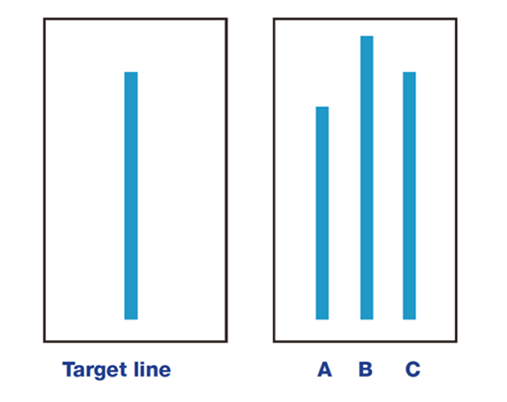<< Hide Menu
Dalia Savy
Sumi Vora
Dalia Savy
Sumi Vora
From the College Board
👀 Developing Understanding of this Unit
According to the College Board, "In this final unit, psychological concepts and theoretical perspectives are pulled together from throughout the course. Social psychology is the study of how other people and groups 👪influence behavior and mental processes as well as how behavior and mental processes influence our experiences in social situations. Social psychology also involves the study of how our perceptions of social situations impact how we interact with others and how others interact with us. Social psychologists may focus on one aspect of social situations or interactions and may do so from a variety of theoretical perspectives, including other integrative perspectives."
🔎 Guiding Question
- How does the bias of a researcher affect their conclusions?
Contextualizing the Unit
The past units in AP Psych have focused mostly on the individual—how we act, how we perceive things, and our own personality and motivations 🌠 However, there’s a whole other side to psychology called social psychology: how we think about, influence, and relate to one another. In other words, social psychology studies why the same person behaves and treats others differently based on the situation around them 👪
Key Facts
🤓 Psychologists and Famous Studies to Know
Many of the famous studies in this unit were conducted before ethical guidelines were a thing. Some of them may be a little unsettling. By studying them, however, the College Board reminds us that we can "learn how to conduct valid research, identify ethical flaws, and use appropriate data and data collection processes." In other words.. how we can not make the same mistakes as before.
Leon Festinger
Festinger introduced us to cognitive dissonance theory. Dissonance means when two things clash. In cognitive dissonance theory, our thoughts and our actions clash. Festinger believes that when this happens, it causes discomfort, and leaves us with two choices. We can either change our thoughts or change our actions in order to relieve the tension.
Philip Zimbardo
Ever heard the expression "fake it 'til you make it?" It's basically the idea that if you act as if you belong in a role, let's say a prison guard or a prisoner, eventually, you will become that person. That can be a good thing when we are new to a role, like a new job or becoming a parent. Stanford psychologist Philip Zimbardo learned, however, that it can also make good people do evil things. You will learn more about his famous Stanford Prison Experiment in the 9.3 Study Guide.
Solomon Asch
Asch is best known for his famous study on **conformity--**when we change our behavior to fit in with some group standard or expectation. Asch designed an experiment in which he put college students in a room with several other confederates (students who were in on the deception). Their task was to match a target line (see below) with a group of comparison lines (ABC). Looks easy, right? The catch was that Asch instructed the confederates to give wrong answers. Although most of the time the subjects told their truth, Asch was surprised when his results showed that more than one-third of the time they were "willing to call white black" or change their answer to conform with the group.

Image courtesy of Saul McLeod, via Wikimedia Commons
Stanley Milgram
In one of the most famous and controversial studies in psychology, Milgram discovered the lengths to which human beings will give in to social pressure. He was motivated to understand the Holocaust and other atrocities committed by people when given orders to do so. What he learned shocked the psychology world. You will learn more about this ethically challenged experiment in the 9.3 Study Guide.
📝Vocabulary
| Fundamental attribution error | Self-serving bias | False consensus effect | Confirmation bias |
| Just-world hypothesis | Halo effect | Central route to persuasion | Peripheral route to persuasion |
| Cognitive dissonance | Elaboration likelihood model | Groupthink | Conformity |
| Obedience to authority | Bystander effect | Social facilitation | Social inhibition |
| Group polarization | Deindividuation | Diffusion of responsibility | In-group/out-group bias |
| Reciprocity norms | Social norms | Social traps | Superordinate goals |
| Ethnocentrism | Prejudice | Bias | Discrimination |
| Scapegoat theory | Stereotype | Out-group homogeneity bias | Mere-exposure effect |
| Altruism | Aggression | Interpersonal | Attraction |

© 2024 Fiveable Inc. All rights reserved.